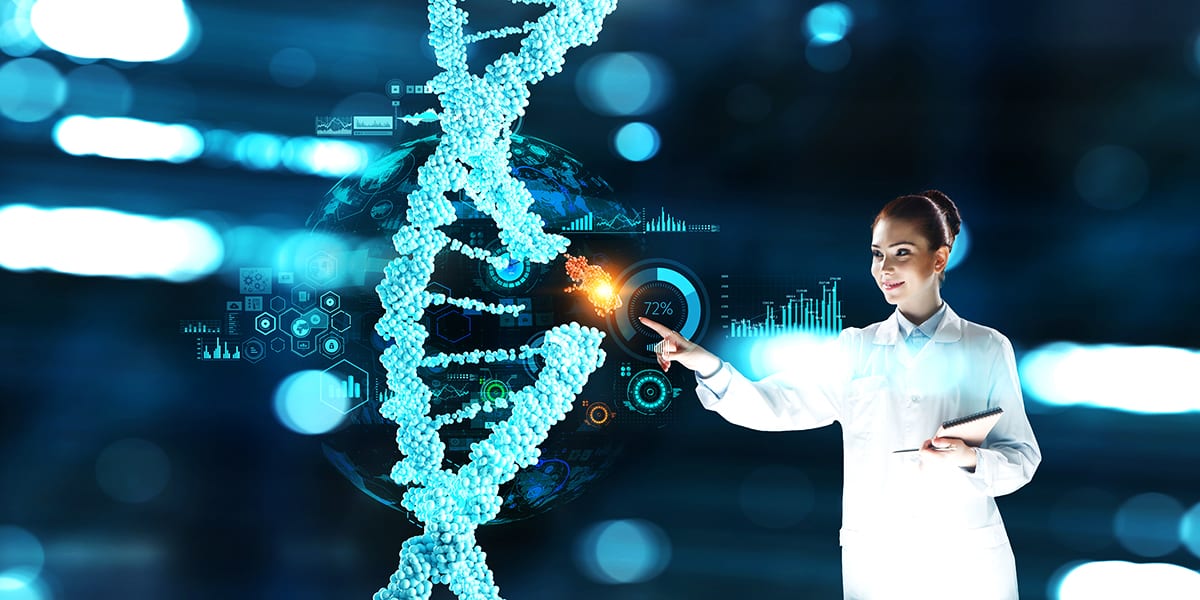GMO: A Safe and Sustainable Solution for Feeding the World
In the past years, GMOs or Genetically Modified Organisms have become a hot topic of debate. Genetically modified foods have been subjected to numerous controversies, raising concerns over their safety and sustainability. However, with the growing demand for food, some argue that GMOs are a necessary solution for feeding the world’s population. In this article, we will analyze why genetically modified foods are a safe and sustainable solution for feeding the world.
What are GMOs?
GMOs are organisms whose genetic material has been modified in a laboratory using genetic engineering techniques. This process can involve the addition, deletion, or alteration of genes within an organism’s DNA, which allows scientists to create plants, animals, and microorganisms with desired characteristics. It has been used to improve yields, increase resistance to pests and diseases, and enhance nutritional value.
The Benefits of GMOs
1. Increased Crop Yield
One of the main benefits of genetically modified crops is an increase in yield. By adding genes that improve resistance to pests and diseases, GMOs can reduce the amount of crops lost to biotic stress, leading to a higher yield.
2. Water Conservation
GMOs can also help conserve water. Scientists can add genes that regulate water usage in plants, making crops more drought-tolerant. This would be incredibly useful in regions where water is scarce.
3. Improved Nutritional Value
GMOs can be modified to have improved nutritional value. For example, scientists developed a genetically modified rice variety called Golden Rice, which has higher levels of vitamin A than normal rice. This can help address nutritional deficiencies in developing countries.
4. Reduced Use of Pesticides
GMOs can help reduce the use of pesticides. Crops that have been genetically modified to be resistant to pests would require fewer pesticides to protect them. This reduces exposure to harmful chemicals and conserves resources.
The Safety of GMOs
Despite the benefits of GMOs, many people remain concerned about their safety. The truth is, genetically modified foods have been extensively tested and proven safe by numerous scientific organizations.
One example is the American Medical Association, which stated that «Bioengineered foods have been consumed for close to 20 years, and during that time, no overt consequences on human health have been reported, and few allergic or toxic reactions have been scientifically documented.»
In fact, some argue that GMOs are safer than conventionally bred crops. Traditional breeding methods involve randomly mixing genes, whereas genetically modified crops can be precisely engineered in a laboratory.
Sustainability of GMOs
The sustainability of GMOs is another concern that many people have. Critics argue that genetically modified crops can harm the environment by creating problems such as herbicide-resistant weeds.
However, studies have shown that when used correctly, GMOs can be more sustainable than traditional farming methods. For example, genetically modified crops can help reduce the amount of land required for farming and conserve resources such as water.
The Importance of Biotechnology in Agriculture
The use of biotechnology in agriculture is essential to maintain a stable global food supply. With the world’s population projected to reach 9.7 billion by 2050, food production must increase by over 70% to meet demand.
Biotechnology can help achieve this by developing crops that are more resistant to pests and disease, have a higher yield, and use fewer resources. It can also help address environmental challenges such as climate change by developing crops that are more resilient to extreme weather conditions.
GMO Labeling
One issue that has arisen regarding genetically modified foods is the labeling of GMO products. Some people feel that they have a right to know whether their food contains GMOs, while others argue that labeling genetically modified foods could be misleading and create confusion.
In the United States, the FDA does not require GMO labeling, but companies can voluntarily label their products as containing genetically modified ingredients. The European Union, on the other hand, requires all food containing GMOs to be labeled.
Conclusion
GMOs are a safe and sustainable solution for feeding the world’s population. The benefits of genetically modified crops include increased yield, improved water conservation, and higher nutritional value. GMOs have been extensively tested and proven safe by numerous scientific organizations. By developing crops that are more resistant to pests and disease and use fewer resources, biotechnology can help address the challenges of feeding a growing population. While concerns regarding GMO labeling remain, the benefits of GMOs cannot be ignored. Say Yes to GMOs, and let’s work towards a more sustainable future for our food supply.
- Descubre los superalimentos que cambiarán tu vida para siempre - 28 de abril de 2023
- Unlock Your Body’s Potential: Discover the Power of These 10 Essential Exercises to Improve Your Flexibility! - 28 de abril de 2023
- Boost Your Energy and Health with These Iron-Rich Foods: A Must-Have in Your Diet! - 28 de abril de 2023
